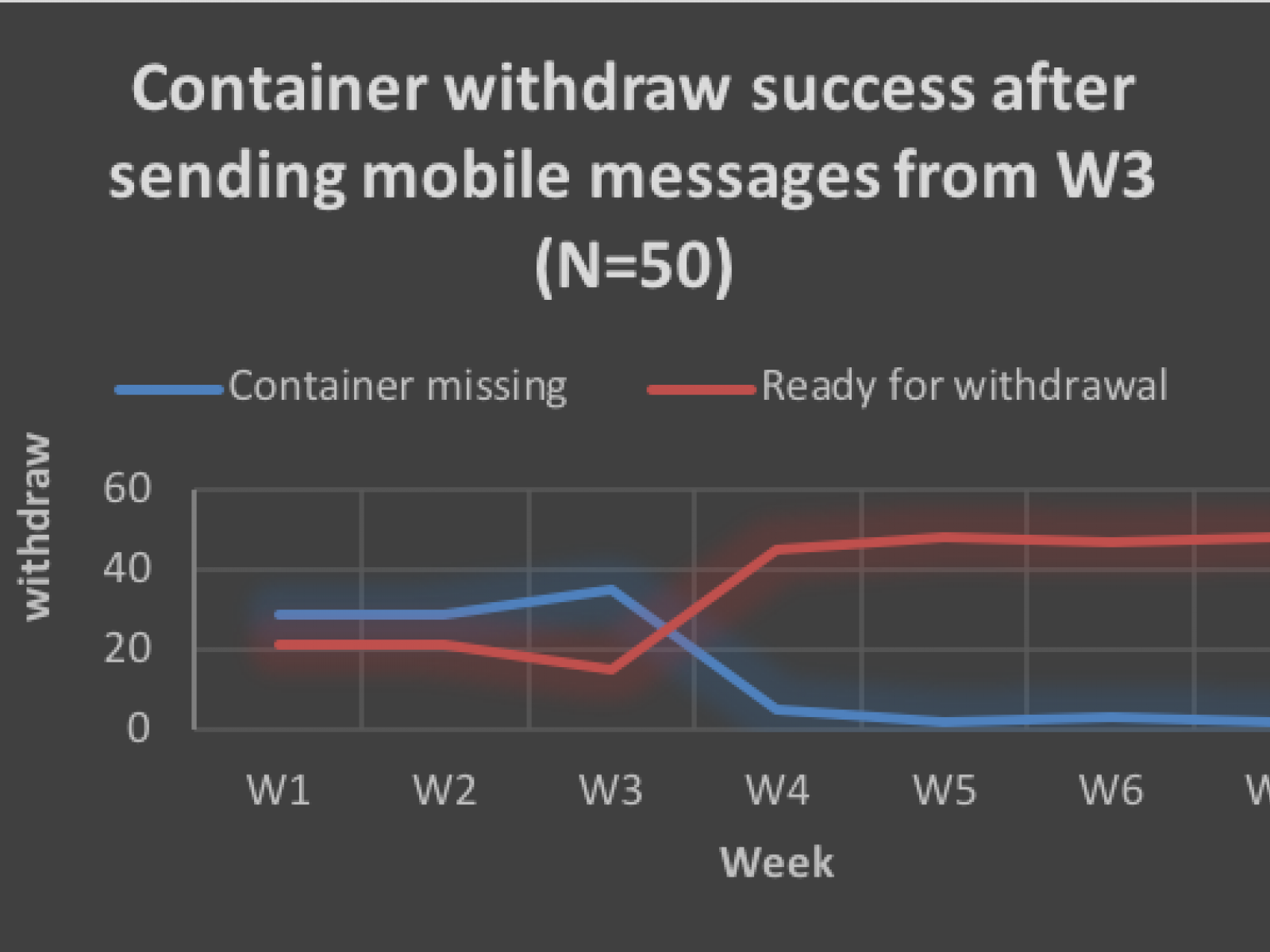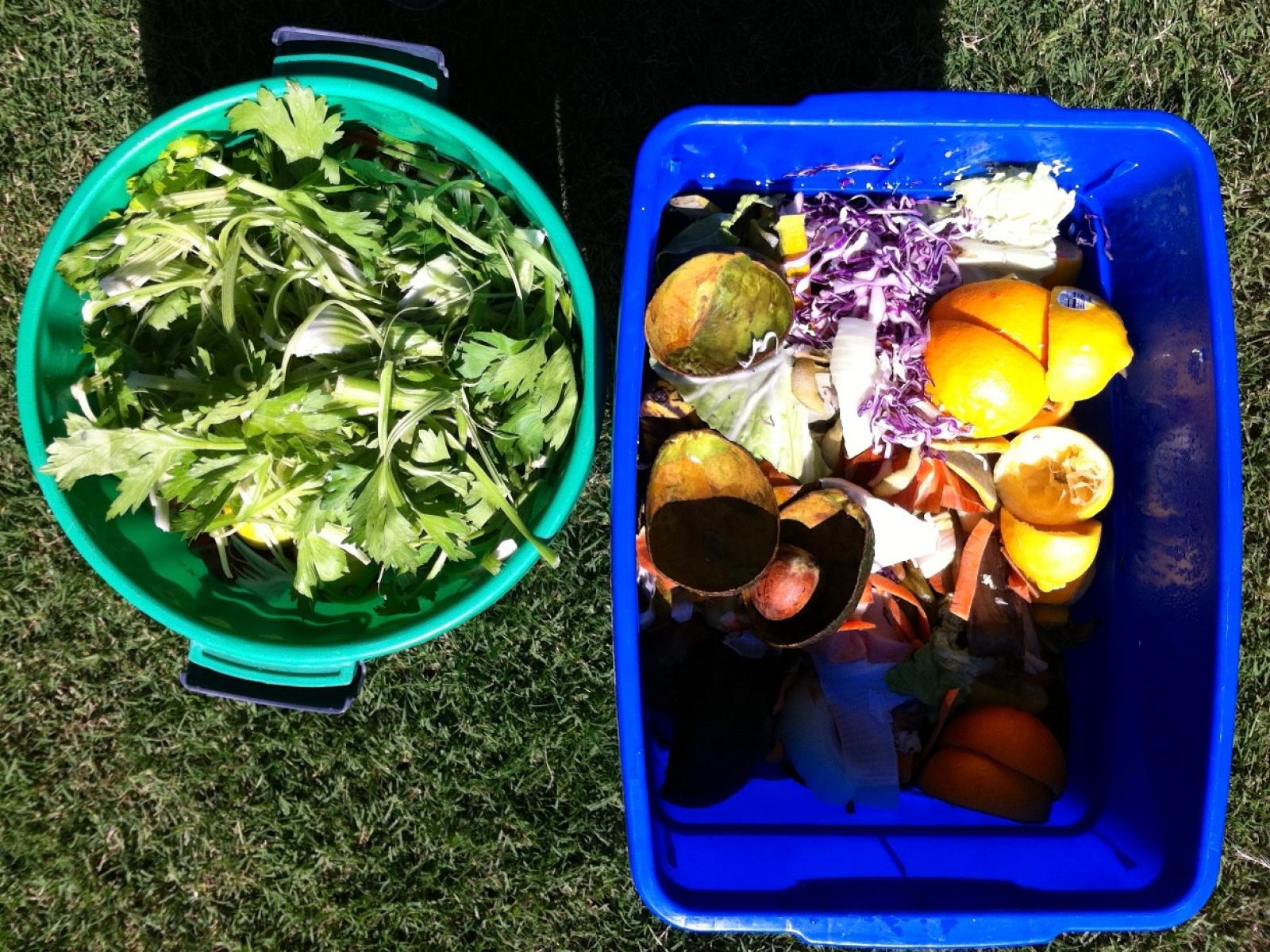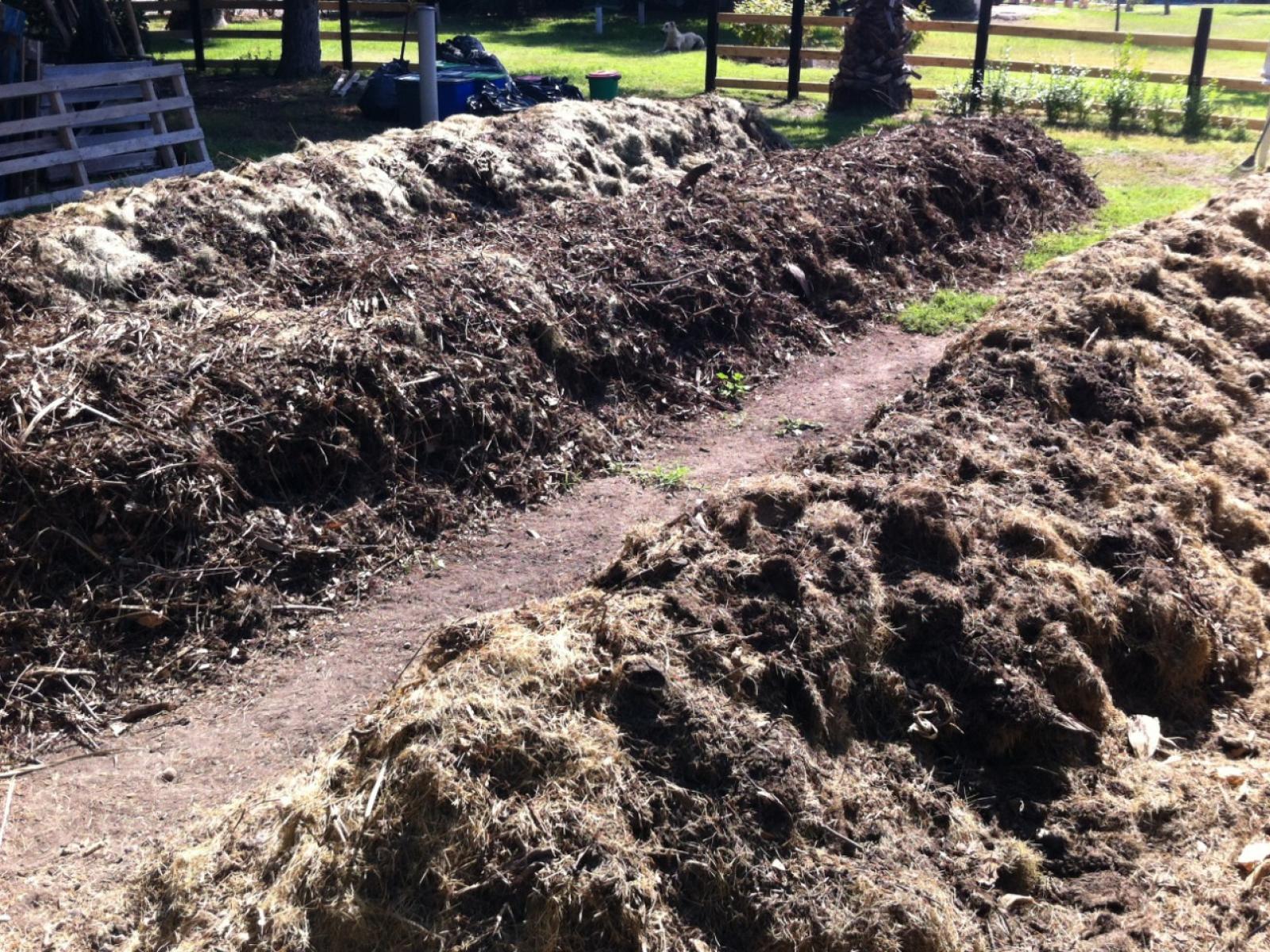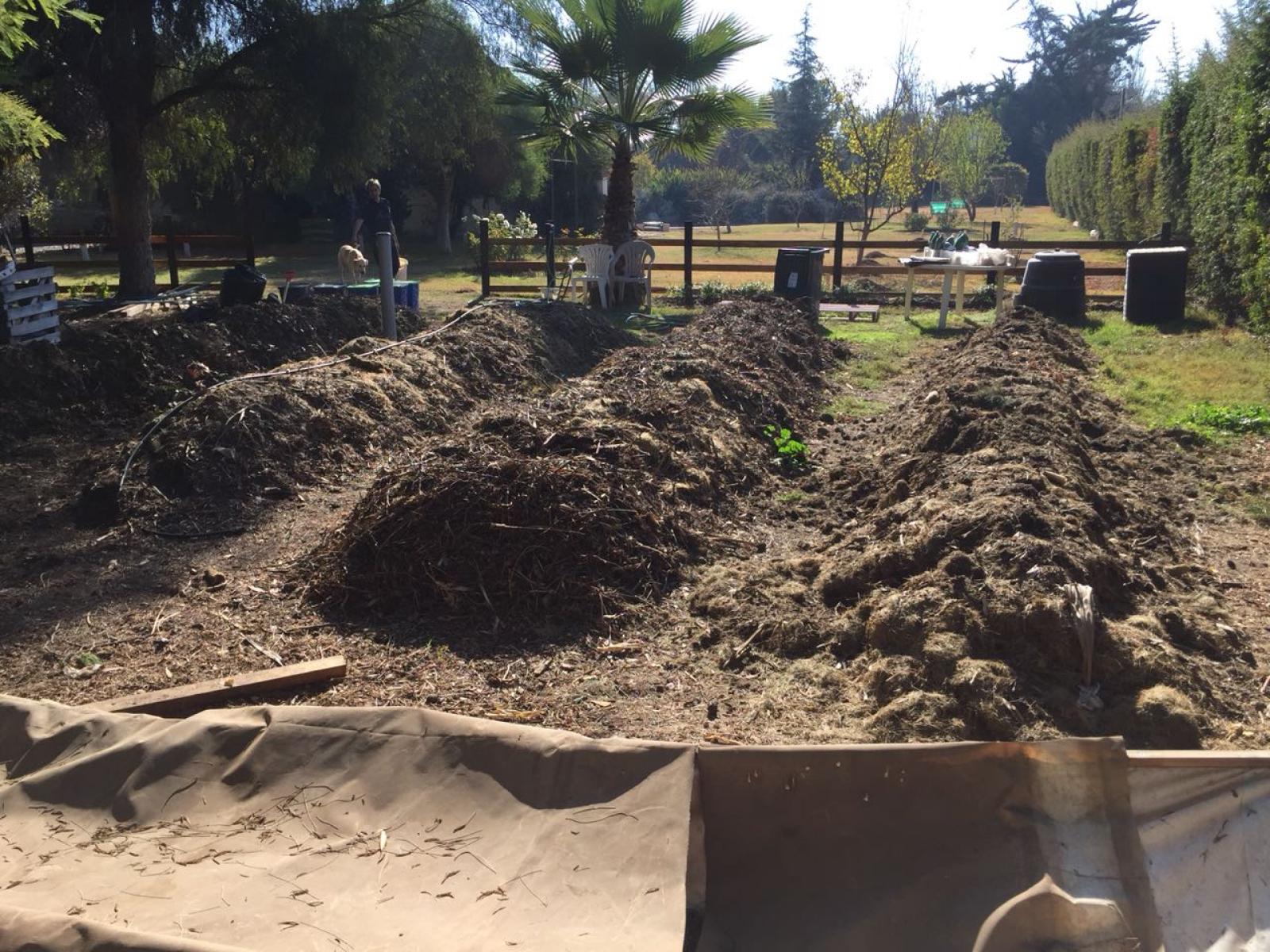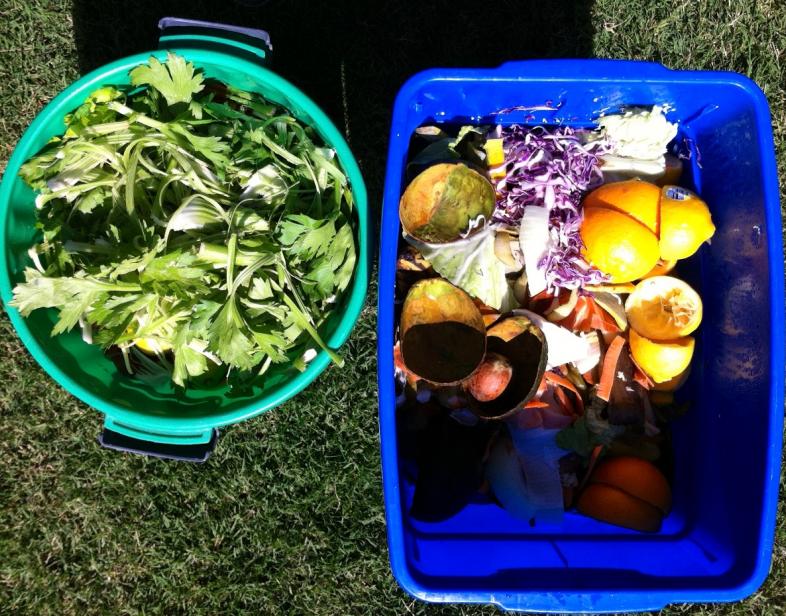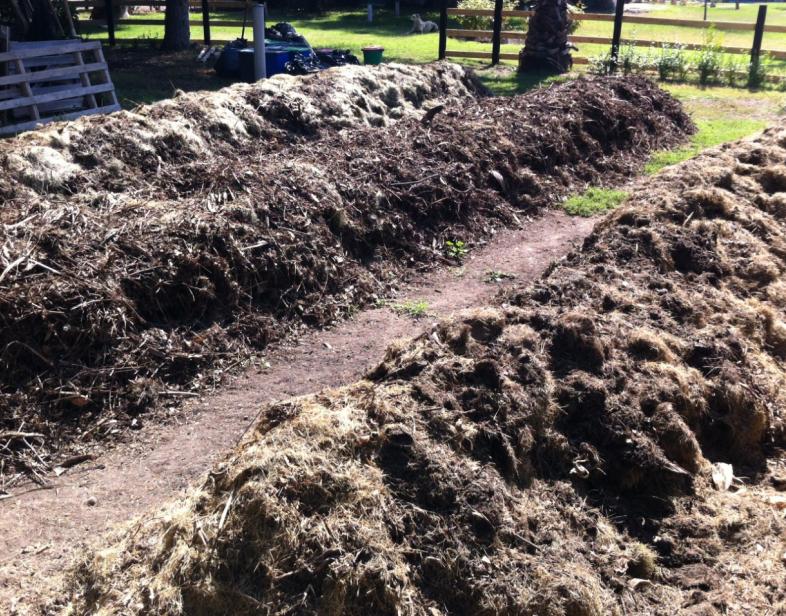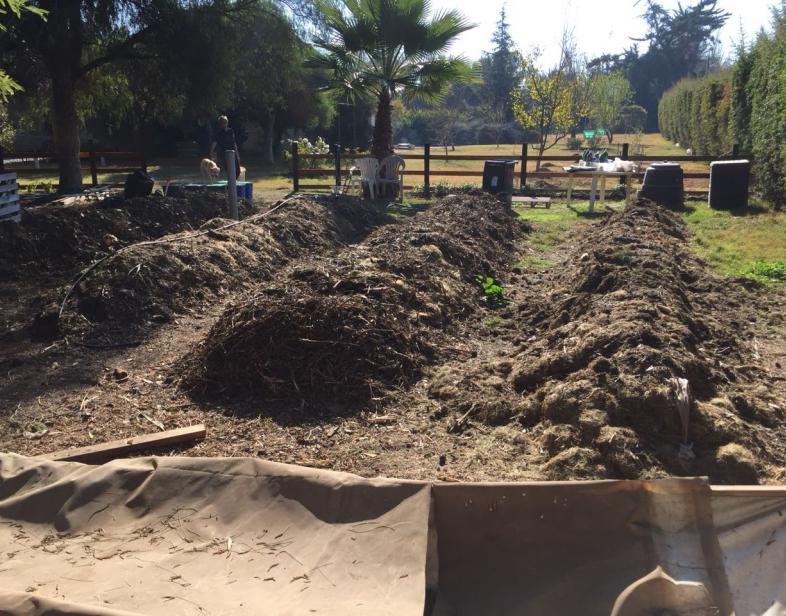An Overview Of Our Solution
Chile is a major producer of per capita waste. Only 10% of Chilean wastes are recycled, and organic wastes are not considered. Bad management of organic waste is a major concern for public health and environmental pollution. More than 50% of residues correspond to organic wastes. Once in the landfill, they produce methane and other toxic gases, pollute water and create an explosion risk. Landfilling is one of the biggest anthropogenic sources of methane worldwide. Avoiding organic residues to get to the landfills is a great challenge in terms of cultural change and logistic operations, but its benefits are worthy. Less than 1% of this type of residues is recycled in Chile. Costs associated with the transport of organic residues (weightier than non-organic) are too high for municipalities, and composting and biogas production are an ecological alternative.
- Population Impacted: 1500
- Continent: South America
Context Analysis
Our recycling program started as a free pilot. We contacted different households who accepted to start separating organic residues, for what we gave them a special container and accorded to withdraw it on Wednesdays. A lot of people has problems to recognize which are organic residues. They forgot to leave the container outside their homes on Wednesdays in several occasions. We started sending them messages to remind them. It works, also it helps creating a relationship with the client. We started to ask for money to cover operational costs, a lot of people didn't understand why they should pay for the service. The willingness to pay was low, and we lost a lot of households. People who stayed, were conscious about their responsibility for producing waste. Others were educated and agreed to pay a little amount monthly. Lot of people still believe throwing garbage is free, but the tendency is that WTP is increasing. People likes to receive compost from their own garbage periodically.
Describe the technical solution you wanted the target audience to adopt
We want people to separate their organic residues in their homes. This would facilitate the process of recycling them. For this purpose, we delivered a special container that is withdraw every week, and in exchange we deliver another one, clean and functional. We would like to work with compostable bags, but people are too neglect with this, and usually misuse them. This technical solution deals with a problematic behavior of not separating garbage, through education and persistence in time.
Type of intervention
Describe your behavioral intervention
The behavior that we want to change is that of not separating garbage. For this, we started a program that gives all the facilities for a household to do this task. For reminding them to leave the container outside the home for withdrawal, we started sending personalized messages, that not only had the mission of being a reminder, but also educate in terms of recycling and its importance.
We are also trying to change the understanding of what is trash and what is not, making the families we are working with understand what it means that the organic waste they produce when they eat can be turned into earth if they follow a responsible treatment cycle, and that does not matter if those waste end up in a conventional dump or being processed.
As needed, please explain the type of intervention in more detail
In terms of emotional appeal, we convinced people who were not interested in sustainable waste management, by talking to them about the future of their sons and grandsons in this Planet, full of garbage and pollution if they don't do something about it.
In relation to social incentives, we created a distinguished group of people, part of EcoChena club for sustainable waste management, so that people who were not part of it, would desire to be into, because people of this club is cool and ecological, and they can say that they are taking action about climate change, something that not everybody can do.
Describe your implementation
The specific activities that we do to address the problem of organic waste management are the next: Separation at origin of the organic waste, this means that we make people to separate their organic waste in their own homes, by giving them a special container for this type of residues. Then, with a truck, we make a weekly withdraw of the containers and exchange them for clean ones. All the residues are driven to our composting plant, where we treat them to transform organic residues into compost. Also we make campaigns to promote ecological behaviors in our client's daily life, and for catching new clients. We send phone messages to all our clients weekly, to remind them that they are doing something cool for the planet. We get sure that this is working once we notice people effectively separates their organic trash. Also, sometimes clients tell us that they feel proud about what they are doing, and that they feel compromised with this campaign. The conditions in which Ecochena Spa's work is carried out are suitable for this type of activity because we are located in a peri-urban area with great connectivity to places where huge amounts of urban waste are produced. The key factors of success in a job like the one we do, are: Incorporating sophisticated composting technologies, have an important cost reduction in every process we do, have an efficient logistical network and having good relations with public organisms, like the municipalities. In the Municipality of Calera de Tango, they are aware of our initiative, they expressed interest in supporting us in logistics and communication development issues. The obstacles are mainly public policies and legal issues. Chilean environmental legislation is not very developed, which is why there is a large bureaucracy in the legal fields. Product of them our operations has been hindered. However, we have solved this, and we already find all the corresponding legal articulation.
External connections
One of the most important things in our business is to have good networks. We work with organizations like "Basura Cero", which is a certification company of good environmental practices. Through them we can create value to our proposal to restaurants and some other big clients who wants to manage their organic wastes. Also a key partner are the municipalities, because they are really interested in reducing waste management costs, and this can be achieved through our proposal. Neighbors boards are also a key partner, because through them we can catch a lot of clients simultaneously. Some great enterprises are interested in incorporating good environmental practices to their daily activities, so they are also a key stakeholder, because they can afford to spend a lot of money for these campaigns. Our activities meet the guidelines of public policies at the national level, which are seeking to generate more and more environmental awareness and support those who work in activities related to the care of the earth.
Who adopted the desired behaviors and to what degree?
We have seen that mainly in the families with whom we are working. It is not only a change of consciousness but to add certain practices in everyday life that may seem tiny and often take more time than you might think. The separation of organic waste from inorganic waste on the one hand, and the reminder of the agreed day for container withdrawals. In both cases we have experienced considerable time for an integral advance: between three and six months. It is important to emphasize that once the time indicated is over, the behavior of people is in most cases excellent, respecting both the careful separation of organic and inorganic waste, and respecting the time and day of container withdraw.
How did you impact natural resource use and greenhouse gas emissions?
By separating organic waste at origin, we avoid them to be driven to landfills, places which are one of the biggest anthropogenic methane producers. This is a great impact on natural resources care, because landfills produce a lot of pollution, by means of toxic gases emanation and ground water contamination. Also, we calculate carbon footprint of our clients, by measuring the weight of their organic residues weekly, and using a carbon dioxide conversion factor then. This allow us to inform our clients about their contribution to environmental care and letting them know that they are really making something good. Our idea is to improve this methodology, so that we can create performance indicators for households and enterprises, regarding their impact on greenhouse gases emission reduction.
What were some of the resulting co-benefits?
The co-benefits we identified are the strengthening of relations between households that are part of our program. Once they start participating, they feel identified as a member of a distinguished group of persons, who are concern about environment and take action over it. This creates a social benefit, because people who are not part of this group starts to desire being part of it, and the behavior gets replicated. Regarding water resources, by managing organic wastes in an ecological way, we avoid contamination of groundwater by landfills leaching. Also, by producing compost and hummus, we create a high value product as a fertilizer for agriculture and safe food production. All we do is based on sustainable development, by implementing circular economies that looks forward into a future where no residues will be wasted. We promote environment conservation through organic waste management.
Sustainability
Our Solution, EchoChena, has a value proposal for each costumer segment and his respective revenue system. For households, we provide a Solid Waste Management Program (SWMP) which has a cost of 15 USD a month. For restaurants and big enterprises that adopt our services, the monthly cost depends on the volumes of organic wastes they produce, and it can go from 100 USD to 1000 USD a month. Additionally, based on the production of substrates made on the compost central, we sell the surplus to get some profits. So, our solution relies mainly on market-based revenue. Also, we can work for public tenders, and receive government subsidies for organic waste management projects.
Return on investment
The size of the investment was around USD $ 10,000.00, considering the truck, facilities and time invested in the operations and planning. The results, for the other hand, are constant cashflows from the subscribers to the Solid Waste Management Program. In addition, there are cashflows from the selling of substrates. We estimate that if we only operate base on an initial size of 150 houses, charging USD$ 7 each one, we can get, annually 15% ROI.
How could we successfully replicate this solution elsewhere?
Implementing the Ecochena Spa model needs to be evaluated according to the sociocultural context of the place where it wants to be replicated. Since this is an activity that relies on people behavior, it is fundamental to know the population you are working with. It is important to consider the location of the project because it needs to be close to the cities so that costs of logistic would not be high. Composting knowledge is needed. Other composting ventures concentrate their efforts in industries like food, agroforest, but not households and restaurants. Some fixed costs (rent, staff, supplies, others) must be covered at the beginning. The key partners are the municipal and others governmental institutions. It is necessary to stablish strong channels and campaigns for catching clients and informing about the proposal. Many people are skeptical to these initiatives because they ignore the benefits.
